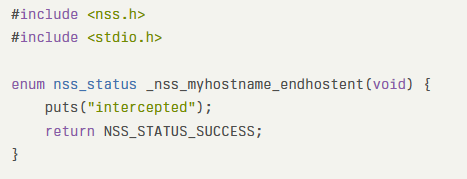[[{“value”:”
A critical vulnerability in the GNU C Library (glibc), potentially exposing millions of Linux systems to local privilege escalation attacks.
Tracked as CVE-2025-4802 and publicly disclosed on May 16, 2025, this vulnerability could allow attackers to execute arbitrary code by manipulating the LD_LIBRARY_PATH environment variable.
Systems running Rocky Linux, Debian, Ubuntu, and other major Linux distributions with glibc versions 2.27-2.38 are potentially affected.
Critical glibc Vulnerability
The flaw affects statically linked setuid binaries that call the dlopen() function, either directly or indirectly through common functions like setlocale() or Network Security Services (NSS) functions such as getaddrinfo().
Normally, setuid binaries ignore environmental variables like LD_LIBRARY_PATH for security reasons, but this vulnerability circumvents that protection.
“A statically linked setuid binary that calls dlopen may incorrectly search LD_LIBRARY_PATH to determine which library to load, leading to the execution of library code that is attacker controlled,” states the official glibc security advisory.
The vulnerability was introduced in 2017 by commit 10e93d968716ab82931d593bada121c17c0a4b93 and was fixed in January 2023 by commit 5451fa962cd0a90a0e2ec1d8910a559ace02bba0, which was incorporated into glibc 2.39.
Proof of Concept
Security researcher Solar Designer has developed and publicly shared a test case demonstrating the vulnerability:
When compiled into a shared library and placed in a directory specified by LD_LIBRARY_PATH, this code can be loaded by vulnerable programs, potentially allowing arbitrary code execution with elevated privileges.
While the security advisory notes that “no such program has been discovered at the time of publishing,” the vulnerability remains concerning because custom setuid programs, although discouraged as a security practice, are common in enterprise environments.
This makes the bug a low-probability but high-impact vulnerability, especially in environments with legacy or custom-built static binaries.
| Risk Factors | Details |
| Affected Products | glibc 2.27 (2018) to 2.38 (2023) |
| Impact | Arbitrary Code Exceution |
| Exploit Prerequisites | 1. Local access 2. Presence of static setuid binary using dlopen() 3. Write access to LD_LIBRARY_PATH directories |
| CVSS 3.1 Score | 9.8 (Critical) |
Mitigation Strategies
System administrators should prioritize the following actions:
- Update glibc to version 2.39 or later, which contains the fix for this vulnerability.
- Apply available security patches from your Linux distribution vendor.
- Audit systems for statically linked setuid binaries, particularly custom applications.
- Consider implementing additional access controls using SELinux or AppArmor.
- Review and minimize the use of setuid binaries across systems.
Organizations using older Linux distributions should check with their vendors for backported patches addressing this vulnerability, as the issue affects systems dating back to 2017 when glibc 2.27 was released.
Vulnerability Attack Simulation on How Hackers Rapidly Probe Websites for Entry Points – Free Webinar
The post glibc Vulnerability Exposes Millions of Linux Systems to Code Execution Attacks appeared first on Cyber Security News.
“}]]
Read More Cyber Security News
